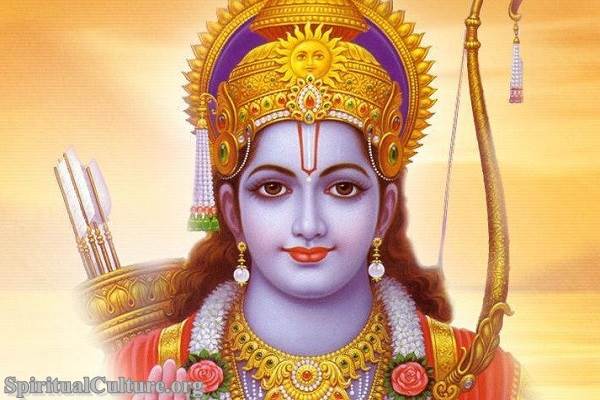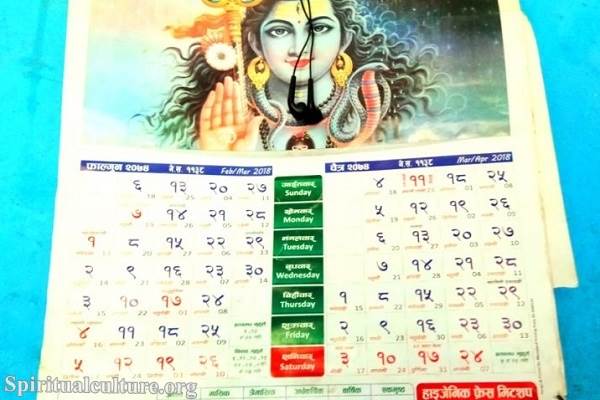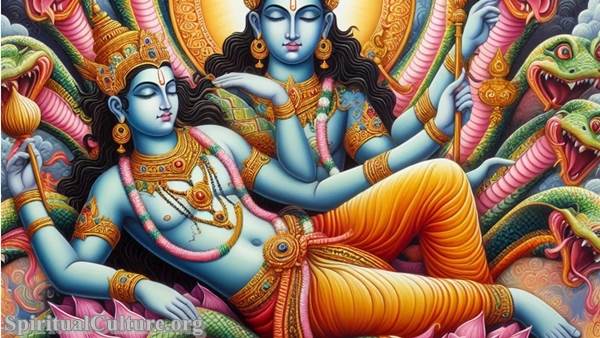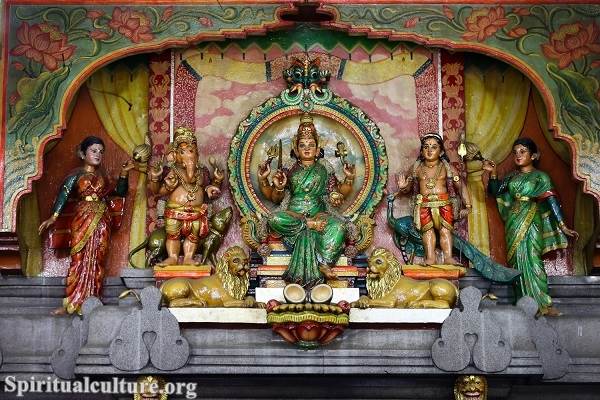Hinduism is a complex and diverse religion that has evolved over thousands of years. Here are a few key beliefs that Hindus commonly hold:
A. Hinduism beliefs
I. Basic beliefs of Hinduism
Some basic beliefs are commonly held among Hindus. These include:
- Belief in the divinity of the Vedas, the ancient scriptures of Hinduism.
- Belief in the concept of karma, which holds that the actions of an individual determine their future fate.
- Belief in reincarnation, or the cycle of death and rebirth.
- Belief in the existence of a supreme being or multiple deities and the importance of worshiping these deities through puja (rituals).
- Belief in the importance of dharma, or living in accordance with moral and ethical values.
- Belief in yoga and meditation as a means of achieving self-realization and liberation from the cycle of death and rebirth.
These are just a few of the many beliefs that Hindus hold. Hinduism is a complex and multifaceted religion, and there is much diversity within the faith.
II. Core beliefs of Hinduism
Some core beliefs of Hinduism include the following:
- Belief in one or more supreme beings or deities
- The law of karma, which holds that the actions of an individual in this life will determine their fate in future lives
- The cycle of reincarnation, in which the soul is reborn in a new body after death
- The importance of performing dharma, or one’s moral and religious duty, in order to achieve moksha or liberation from the cycle of reincarnation
There are also many rituals and practices associated with Hinduism, such as puja (worship) and yoga, as well as various texts, such as the Vedas and the Bhagavad Gita, that are central to Hindu belief.
III. Hinduism major beliefs
There are some major beliefs that are central to Hinduism, including the belief in the divine reality of the universe, the belief in karma and reincarnation, and the belief in the ultimate goal of liberation from the cycle of death and rebirth. Hindus also believe in the existence of multiple deities and the power of devotion (bhakti) to achieve spiritual growth. Here are some major beliefs that are central to Hinduism:
- Belief in the divine reality of the universe: Hindus believe that the ultimate reality is a single divine consciousness that permeates the entire universe. This divine consciousness is often referred to as Brahman.
- Belief in karma and reincarnation: Hindus believe that each person’s actions have consequences in this life and in future lives. Good actions lead to good consequences, and bad actions lead to bad consequences. This is known as the law of karma. Hindus also believe that the soul is eternal and passes through a cycle of death and rebirth until it reaches a state of liberation.
- Belief in multiple deities: Hindus believe in a pantheon of deities who represent different aspects of the ultimate divine reality. These deities can be worshipped through rituals, offerings, and devotional practices.
- Belief in the power of devotion: Hindus believe that devotion to a deity or guru can lead to spiritual growth and ultimately to liberation. Devotion is expressed through rituals, prayer, and the singing of hymns.
- Belief in the ultimate goal of liberation: Hindus believe that the ultimate goal of human existence is to achieve liberation from the cycle of death and rebirth. This state is called moksha and is achieved through spiritual growth and the attainment of union with the ultimate divine reality.
B. Hinduism practices
Hinduism is a diverse religion with a variety of traditions and practices. Some common religious practices in Hinduism include:
- Puja: This is the act of worshipping a deity or deities. It typically involves making offerings such as flowers, food, and incense and reciting mantras or prayers.
- Darshan: This refers to the act of seeing and experiencing the divine, often by visiting temples and holy sites or by seeing and receiving blessings from a guru or other holy person.
- Japa: This involves the repetition of a mantra, often using a string of beads called a mala, as a form of devotion or meditation.
- Yajna: This is a ritual sacrifice, often involving offering ghee (clarified butter) or other substances into a sacred fire.
- Yoga: This is a spiritual discipline that involves physical postures, breathing techniques, and meditation, with the goal of achieving physical and mental balance and spiritual insight.
- Fasting: Many Hindus observe fasts on certain days of the month or year to purify the body and mind and cultivate self-discipline.
- Pilgrimage: Hindus often undertake pilgrimages to holy cities and sites to seek spiritual inspiration and merit. Some of the most well-known Hindu pilgrimage sites include Varanasi, Rameswaram, and the Char Dham (four holy sites) in the Himalayas.
- Samskaras: These are ritual ceremonies that mark important transitions in an individual’s life, such as birth, coming of age, marriage, and death. These ceremonies vary by region and tradition, but often involve the recitation of mantras, the offering of puja, and the presence of a priest or other religious leader.
- Ahimsa: This is the principle of non-violence and non-harming, which is central to many Hindu teachings. Many Hindus seek to cultivate ahimsa in their daily lives through their thoughts, words, and actions.
- Festivals: Hindus celebrate a wide variety of festivals throughout the year, many of which are tied to religious deities or events. Some well-known Hindu festivals include Diwali (the festival of lights), Holi (the festival of colors), and Navaratri (the festival of nine nights).





